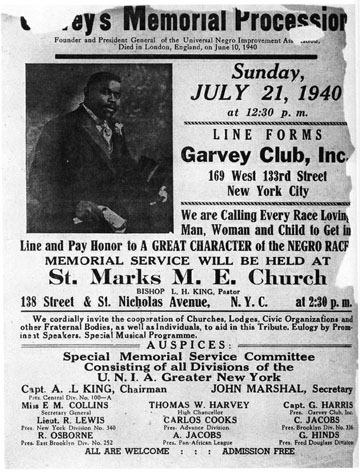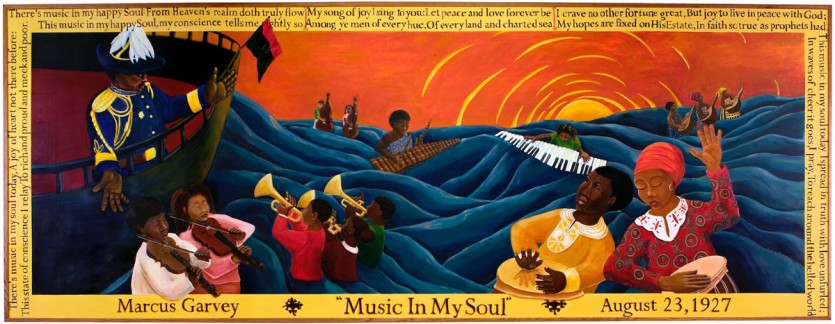The Death of Black Moses ~~~
After his deportation, Garvey remained politically active. On September 9, 1929, Garvey formed Jamaica’s first modern political party (modern meaning a step towards ending colonialism), called the People’s Political Party. The People’s Political Party generated the first political manifesto and constitution in Jamaica. In addition, he wrote various poems and articles. In 1935, Garvey permanently moved to London. He also supported the Greater Liberia Act, a bill proposed by Senator Theodore Bilbo from Mississippi (a known racist) to repatriate Black people to Africa in order to reduce American unemployment. However, in 1940—a month before his actual death—he suffered the final indignity of reading his own obituary. He died on June 10, 1940, of two strokes, at the age of 52, and in virtual obscurity. But his legacy is rich and everlasting.
The Legacy of Marcus Garvey ~~~
Marcus Garvey’s body stayed in London: travel restrictions imposed because of WWII meant that he could not be immediately buried in his homeland. However, in 1964 his body was transported to Jamaica, and he was declared the country’s first national hero. But he did not only inspire Jamaicans; his philosophy inspired many. For instance, a young Kwame Nkrumah was inspired by Garvey while in college in the United States. Kwame Nkrumah went on to become the first president of Ghana when Ghana gained its independence, resulting in the Ghanaian soccer team being called the Black Stars and there being a five-point black star in the middle of the Ghanaian flag—both referencing the Black Star Line. Rastafarians regard Marcus Garvey as a prophet and are influenced heavily by his teachings. And lastly, future civil rights leader, Malcolm X’s parents met a UNIA meeting. Although Marcus Garvey influenced countless others, ultimately, his biggest accomplishment was organizing Black people and giving them a sense of pride. He inspired them to think that they can do or become anything—without assimilating to White people’s values and expectations of what they should be. And that was his greatest achievement of them all.
Marcus Garvey’s Influence on me ~~~
Marcus Garvey was a household name. My father being a Rastafarian and my mother being Jamaican, Marcus Garvey is a hero to both of my parents. With this in mind, they raised me to love myself and to never feel inferior to anyone. As Marcus Garvey is the progenitor of the mantra “black is beautiful,” my parents made sure I could wake up and walk with my head held high—proud of my Afro-Caribbean heritage. My father, a reggae artist, even wrote a song called “You Don’t Have To Be Like Them,” in order to encourage my brother and me to always stay true to ourselves. Knowing how important Marcus Garvey is to who I am and to Black people as a whole, I decided to write this paper about him. Although he failed in many respects, he did manage to make Blacks feel significant, despite the way Black people were treated. And that is why he is and should be still remembered today.
@ALL RIGHTS RESERVED Iforcolor.org/Dale Shields
Stacy St. Hilaire is a student at Randolph-Macon College (The Black Studies Program)


